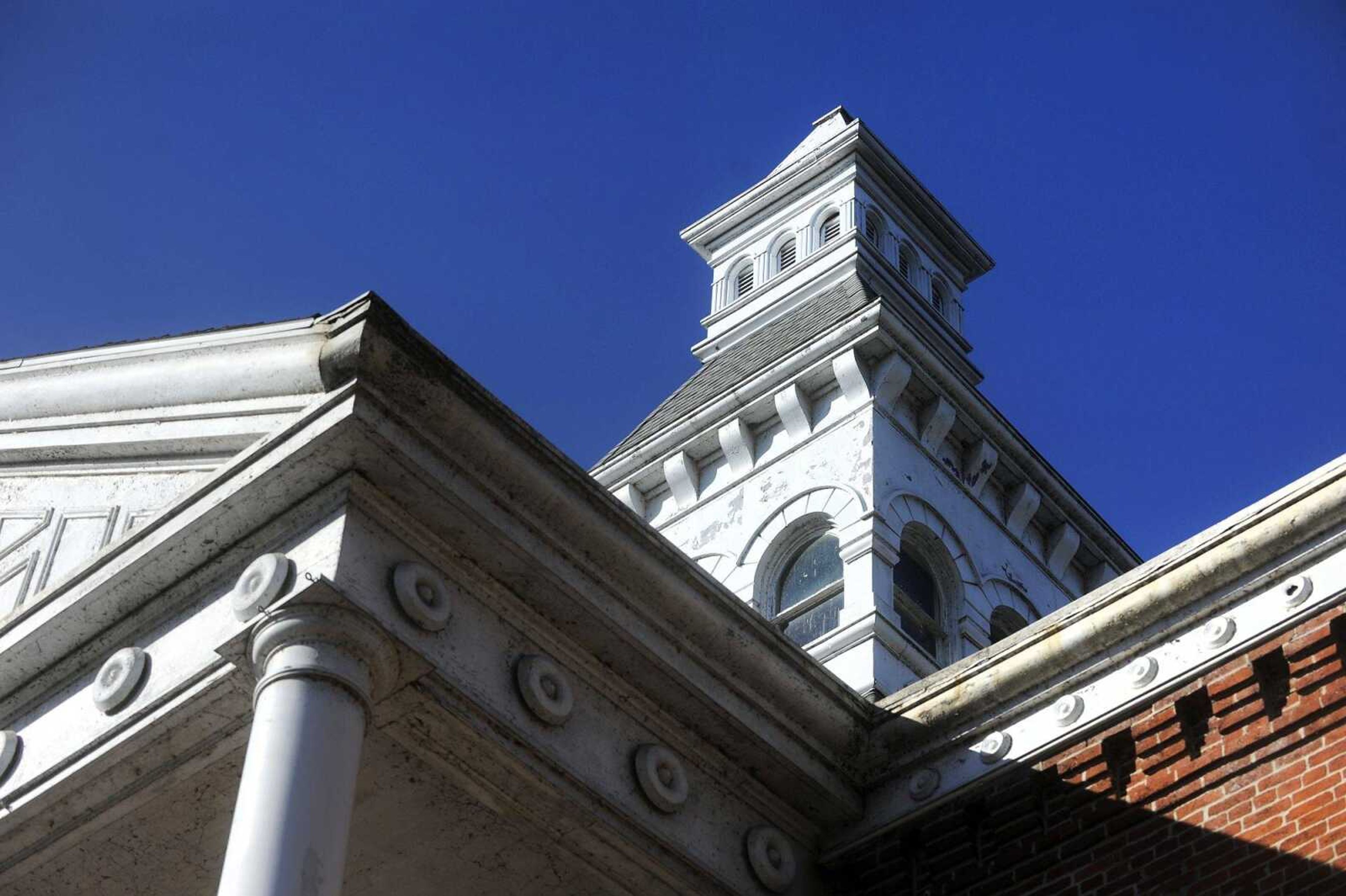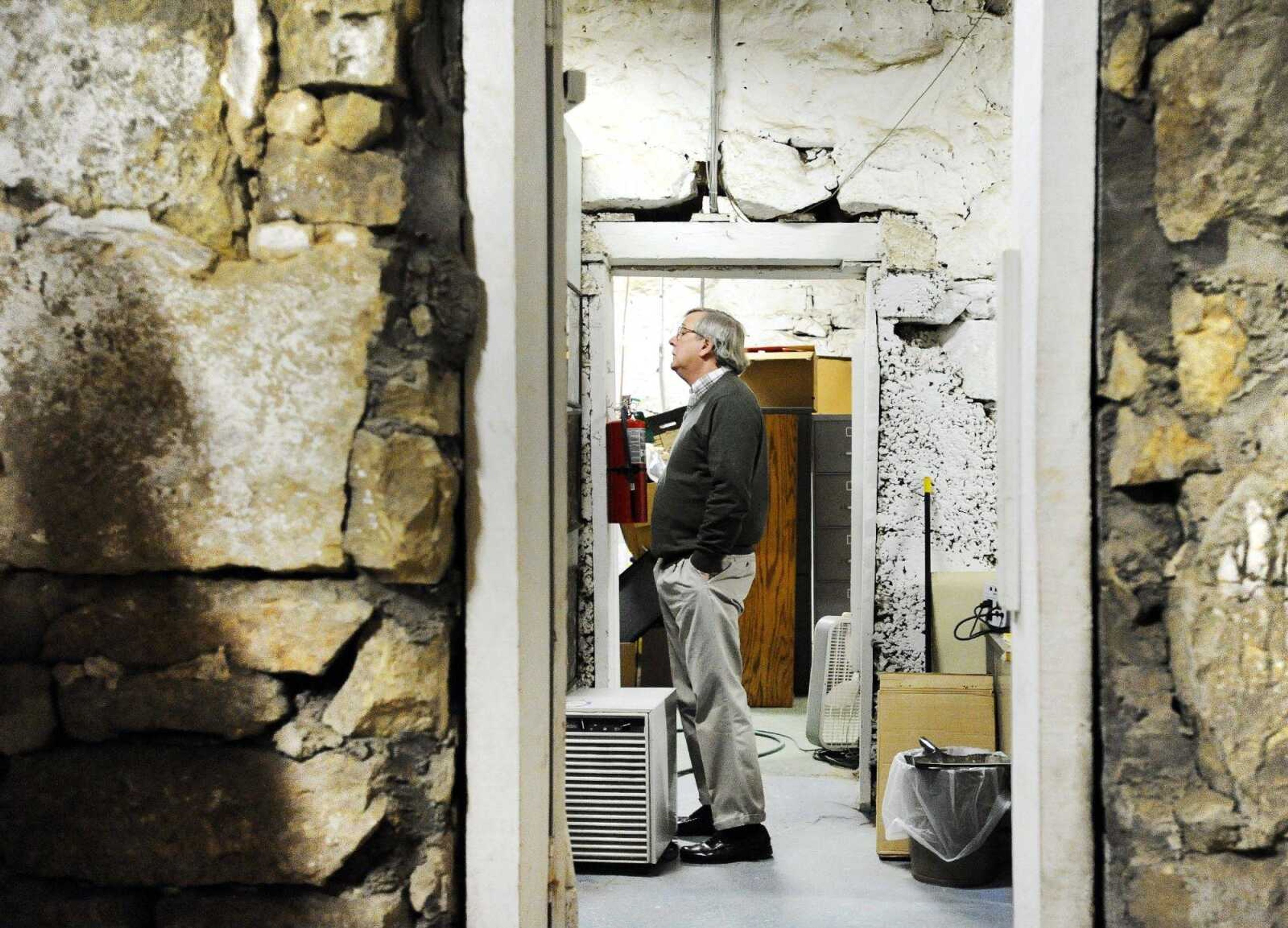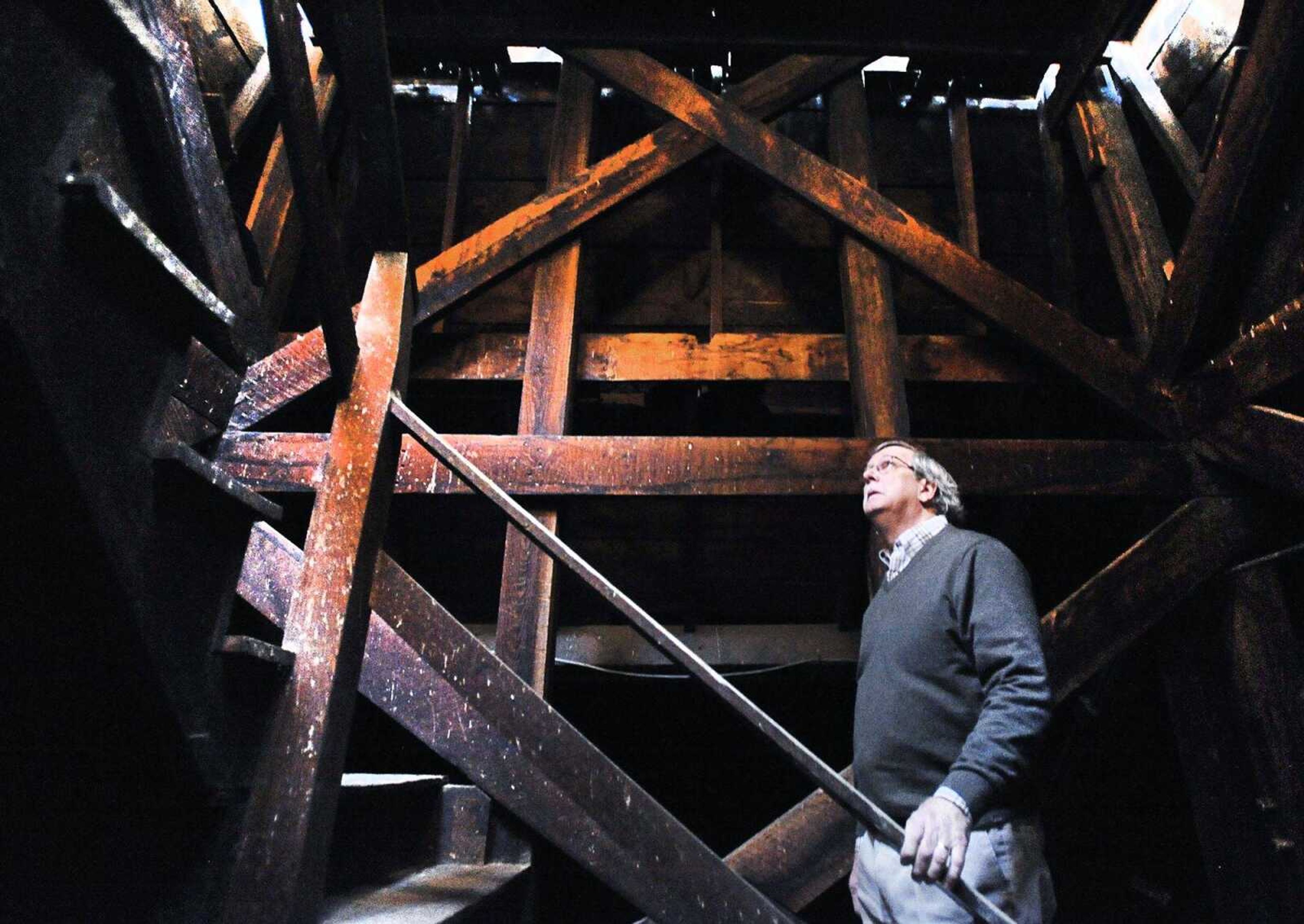'Iconic' Common Pleas Courthouse faces uncertain future
Common Pleas Courthouse is considered by many to be the most iconic building in Cape Girardeau, and for good reason. The building sits on a hill at 44 N. Lorimier St., one of the highest points in the city, with an enviable view of downtown. In its 160 years, the courthouse has seen slave auctions, the eruption of the Civil War and countless civil and criminal trials. ...
Common Pleas Courthouse is considered by many to be the most iconic building in Cape Girardeau, and for good reason.
The building sits on a hill at 44 N. Lorimier St., one of the highest points in the city, with an enviable view of downtown.
In its 160 years, the courthouse has seen slave auctions, the eruption of the Civil War and countless civil and criminal trials. It was the gathering place where crowds flocked to hear vice presidential candidate Franklin Roosevelt speak in 1920 and participate in a rally for Harry S. Truman in 1940 when he campaigned for re-election to his Senate seat. Most recently, people from all over the area gathered on its grounds to participate in or watch the filming of the movie "Gone Girl."
The building has served many needs in the community over the years. Congregations without church buildings and learning institutions without classrooms were granted temporary refuge at Common Pleas while awaiting construction of their facilities.
"It's a cultural heritage site," local history enthusiast Patti House said. "It just tells a story of Cape's past."

She and her husband, Scott House, are actively involved in historical and genealogical groups in the area and volunteer at the Fort D Historic Site in Cape Girardeau. Patti House has lived in the area for about a dozen years, but for Scott House, Cape Girardeau always has been home. Both have significant interest in Common Pleas and its future.
The question of what may become of Common Pleas was raised recently when Cape Girardeau County officials announced plans to consolidate court services in Jackson, eliminating the need for the courthouse in Cape Girardeau. Under the county's plan, the historic Jackson courthouse would be renovated to be used for public defender offices and drug court. The county would quitclaim deed its 50 percent ownership of Common Pleas, and the city of Cape Girardeau would retain full ownership of the building. It already owns the property.
Keeping up with the growing maintenance and security needs of the building have become too expensive, county officials said, prompting them to look at moving all court services into one building to promote efficiency.
"It has its issues, but any 160-year-old building is going to," Scott House said. "But Common Pleas was built well, and that's why it's still with us."
He was among those who prepared the form in 2010 to nominate Common Pleas to the National Register of Historic Places. The nomination was accepted later that year.

Scott House said anyone who grew up in Cape Girardeau knows the courthouse is "beyond iconic." He still remembers riding his bicycle to the public library that was once in the courthouse annex.
"I can remember sitting on the courthouse steps and reading a book," he said. "Those kinds of memories don't fade away very quickly."
The courthouse's history and local importance are not lost on those who regularly spend time at Common Pleas. Circuit Judge Ben Lewis has been hearing cases at the courthouse since he was first elected to the position in 2004. Day-to-day events he and other court employees encounter typically are grim in nature, but other moments -- such as the recent swearing-in ceremony for newly elected Judge Michael Gardner -- are cause for celebration. The ups and downs have made the court employees a tight bunch.
"We're our own little family," Lewis said. "We care about each other."
And they care about the historic building that has long housed their little family. As a Cape Girardeau native, Lewis has been a lifelong admirer of the courthouse. From his spot on the bench, he has one of the city's best views of the Mississippi River, a benefit he recognizes is not afforded to most courthouses. The judge also is one of the few to have viewed Common Pleas from top to bottom.
Below the fluorescent lights and office spaces packed with computers, printers and other appliances is a dirt-floor jail, referred to by many as "the dungeon." Now part of the courthouse basement, it once was used to incarcerate prisoners during the Civil War. The courthouse served as the headquarters of the Union provost who, under military law enacted in Missouri during the war, had jurisdiction over complaints against soldiers or "disloyal" residents.
"One of the most notable incidents was when they had John Fugate Bolin, a Confederate guerrilla suspected of shooting unarmed Union men in Southeast Missouri," Scott House said.
While it was being debated whether Bolin should have his day in court, a mob came and removed him from the jail, hanging him just a few blocks away.
It's easy to conjure thoughts of Civil War times when standing on the dirt floor, surrounded by stone walls and humid air. The illusion diminishes once exposed cables running near the ceiling come into view.
The square cupola on top of the courthouse may not be part of the original architecture -- it was added in 1888, according to the building's National Register nomination form -- but the structure has no less become part of its history. Access to the cupola comes from a small, unassuming wooden door near the upstairs courtroom.
Beyond the door, a narrow wooden staircase leads to a dusty attic. Yet another staircase awaits those who wish to access the cupola. Many who have made the climb made sure to leave their mark, tagging window ledges and stair rails with names and dates.
From the cupola windows to the dirt floor basement, Scott House said the courthouse is "a fabulous building" that "retains its character well." If there comes a day that court no longer is held in the courthouse and all the services have moved to a new facility in Jackson, Scott and Patti House question what will become of Common Pleas. Patti House said she's been called for jury duty and seen the county's concerns firsthand, but still would like to see a plan for the building's future.
City manager Scott Meyer said county commissioners have met with city officials to discuss the county facilities plan. County officials have explained that without funding, plans for a new courthouse will not be able to continue. A use-tax question awaits voter approval in April. Even if it passes, the county will have to wait at least one year to determine what kind of revenue the tax on certain out-of-state purchases will generate. Construction of a new facility also would take years.
"Unless [the county has] a replacement, they're not going to leave," Meyer said. "If they do, it will take ... years to get to the point where they're ready to move out."
He said the process leaves the city with plenty of time to consider a plan for Common Pleas.
For a brief time during the 1960s, part of the courthouse held a museum. Many have said they would be happy to see it dedicated specifically to that purpose in the future if court services move from the building. Scott House said he hopes the courthouse continues to serve a public use and remains well-maintained.
Meanwhile, Patti House envisions a visitors center in the building she called an "identifier" for Cape Girardeau.
"It would be a wonderful place to welcome visitors, that's my personal hope," she said. "People could come and get information about Cape Girardeau and it would be open seven days a week ..."
srinehart@semissourian.com
388-3641
Pertinent address:
44 N. Lorimier St., Cape Girardeau, Mo.
Connect with the Southeast Missourian Newsroom:
For corrections to this story or other insights for the editor, click here. To submit a letter to the editor, click here. To learn about the Southeast Missourian’s AI Policy, click here.










